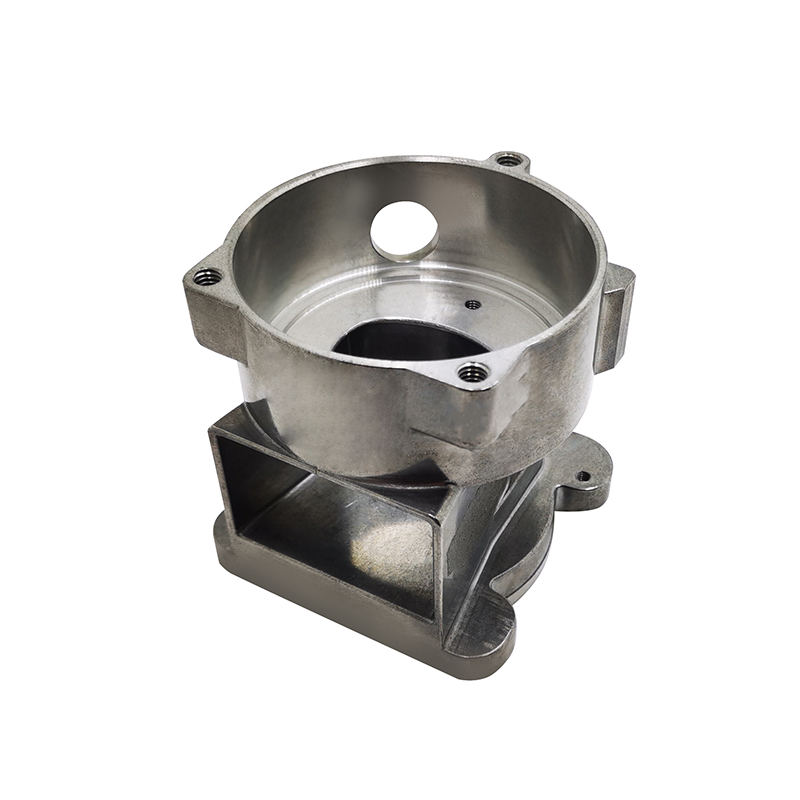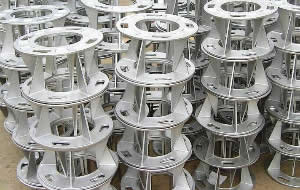Understanding aluminum casting and its uses across industries
The Function of Light Weight Aluminum Foundries ahead of time Lightweight Manufacturing Solutions
Light weight aluminum foundries significantly add to the advancement of light-weight manufacturing services. Their ingenious spreading innovations produce high-strength, lightweight elements essential for sectors such as vehicle and aerospace. This improvement not just improves item efficiency yet likewise advertises sustainability via using recycled materials. As these foundries adjust to arising innovations and practices, they lead the way for future developments in making effectiveness and ecological duty. What lies in advance in this transformative trip?
The Advantages of Lightweight Materials in Manufacturing
As sectors significantly look for effectiveness and sustainability, the adoption of lightweight materials in production has actually arised as a necessary method - Aluminum Foundry. These materials, particularly aluminum and compounds, provide many benefits that enhance manufacturing procedures and item performance. Largely, their minimized weight adds to reduce power intake throughout transport and procedure, leading to considerable expense financial savings
Lightweight products assist in the style of more facility geometries, allowing for greater advancement in product growth. This adaptability typically results in improved functionality and efficiency, catering to the developing demands of modern consumers.
Furthermore, using light-weight materials can boost the long life of items due to their resistance to rust and tiredness. This resilience not just minimizes upkeep expenses yet additionally sustains sustainability efforts, as longer-lasting products add to much less waste. To sum up, the advantages of lightweight materials are pivotal in driving performance, technology, and ecological obligation in manufacturing.
Developments in Light Weight Aluminum Spreading Technologies
Current innovations in aluminum casting innovations are changing the production landscape, especially in the production of light-weight elements. Advancements such as high-pressure die spreading and vacuum die spreading have greatly enhanced the accuracy and surface finish of aluminum components - aluminum casting. These approaches enable the production of complex geometries while minimizing material waste and improving mechanical homes

Furthermore, the application of real-time monitoring systems ensures quality assurance throughout the casting process, resulting in more regular product results. Collectively, these developments not only enhance the efficiency of light weight aluminum components yet likewise support the sector's shift towards even more sustainable manufacturing techniques.
Applications of Light Weight Aluminum Elements in Numerous Industries
While light weight aluminum parts have actually long been utilized in numerous markets, their convenience and lightweight buildings remain to drive innovative applications throughout markets such as vehicle, aerospace, and building and construction. In the automobile market, light weight aluminum is significantly utilized for engine blocks, wheels, and body panels, improving gas performance and performance. Aerospace makers leverage aluminum for airplane structures and components, taking advantage of its strength-to-weight ratio to enhance fuel economic situation and payload capacity.
In the construction market, aluminum is preferred for home window structures, roof covering, and structural aspects, providing sturdiness and resistance to deterioration while minimizing general building weight. Furthermore, the electrical and electronics industries gain from light weight aluminum's conductivity and light-weight nature, using it in wiring, units, and warmth sinks. These varied applications highlight the vital function of aluminum components, which not just fulfill sector demands however also add to developments in item design and capability across multiple fields.
Sustainability and Power Performance in Aluminum Foundries
The light weight aluminum shop industry plays an essential function in promoting sustainability and energy performance, specifically as need for light-weight components remains to grow across various markets. Foundries are increasingly adopting ecologically friendly techniques, such as making use of recycled aluminum, which significantly minimizes energy consumption and greenhouse gas discharges compared to primary light weight aluminum manufacturing.
Moreover, advancements in casting technologies improve power performance by enhancing the melting processes and minimizing waste. Strategies like die spreading and investment spreading permit for accurate material use, reducing excess and scrap.
Furthermore, many factories are purchasing renewable resource resources to power operations, even more decreasing their carbon impact. Applying power monitoring systems makes it possible for foundries to monitor and improve energy usage, ensuring they operate at peak efficiency.

Future Trends in Lightweight Manufacturing Solutions
Just how will arising innovations shape the future of lightweight manufacturing services? Innovations such as sophisticated products, automation, and additive production are readied to redefine manufacturing procedures. The integration of smart manufacturing innovations, consisting of the Web of Things (IoT) and expert system (AI), will allow real-time surveillance and optimization, boosting performance and lowering waste.

As sustainability proceeds to be an extremely important problem, lightweight services will significantly concentrate on reusing and reusing products, go lining up with circular economy concepts. This development in light-weight manufacturing will certainly not just boost item efficiency but likewise contribute to environmental objectives, making certain that the sector stays affordable in a swiftly changing market landscape.
Regularly Asked Concerns
How Do Light Weight Aluminum Foundries Make Certain Quality Assurance in Production?
Light weight aluminum foundries ensure high quality control in production via rigorous screening, standardized treatments, and continuous tracking - Aluminum Foundry. They implement competent personnel and advanced modern technologies to preserve consistency, reduce problems, and satisfy industry requirements throughout the production procedure
What Are the Main Tests Faced by Aluminum Foundries?
Light weight aluminum factories face difficulties such as rising and fall resources expenses, maintaining manufacturing effectiveness, ensuring regular quality, adjusting to technological improvements, and meeting environmental guidelines, all of which effect their overall functional performance and competition out there.
Just How Does Aluminum Recycling Effect Shop Workflow?
Aluminum reusing significantly boosts factory procedures by decreasing basic material prices, minimizing power intake, and reducing environmental effect. This lasting technique makes it possible for factories to enhance effectiveness while fulfilling raising need for lightweight, high-performance aluminum items.
What Abilities Are Needed for Workers in Aluminum Foundries?
Workers in aluminum factories require abilities in metallurgy, machining, quality assurance, and security techniques. Efficiency in operating machinery, understanding alloy homes, and analytic are likewise necessary for reliable manufacturing and keeping high safety standards.
Just How Do Light Weight Aluminum Foundries Deal With Waste Administration?
Aluminum foundries manage waste via reusing scrap steel, utilizing reliable waste partition strategies, and sticking to ecological policies. They carry out lasting techniques to minimize garbage dump contributions, guaranteeing that dangerous products are dealt with responsibly.
Light weight aluminum factories considerably add to the development of light-weight manufacturing remedies. Recent innovations in aluminum spreading modern technologies are changing the manufacturing landscape, specifically in the production of lightweight elements. While light weight aluminum components have actually long been used in different sectors, their versatility and light-weight residential or commercial properties why not try here proceed to drive innovative applications throughout markets such as vehicle, aerospace, and construction. Furthermore, the electric and electronics markets benefit from aluminum's conductivity and lightweight nature, utilizing it in wiring, rooms, and warmth sinks. The aluminum factory sector plays an essential duty in promoting sustainability and power performance, specifically as demand for lightweight components continues to grow across different industries.